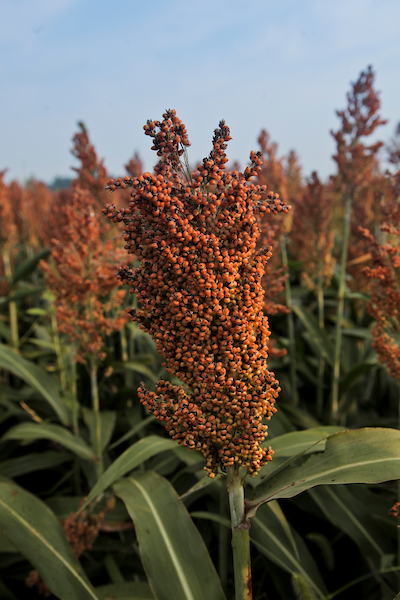The United Sorghum Checkoff Program (USCP) is a consistent partner in the U.S. Grains Council’s (USGC’s) work to promote the reliable quality of U.S. sorghum in markets around the world. In a forward-thinking showing of the industry’s commitment to eco-friendly growing practices, USCP recently revamped its resources available to importers and end-users on how sorghum helps preserve the Earth for future farming generations.
“Sustainability is on the minds of policymakers and end-users in many of U.S. agriculture’s top markets, and USCP has done a great job showcasing sorghum’s low environmental cost in addition to its outstanding benefits for human and animal diets,” said Ryan LeGrand, USGC President and CEO. “The Council and USCP know how hard U.S. farmers work to maintain proper stewardship of their land and we’re proud to make that known to international importers.”
Sorghum is a highly resilient crop that requires significantly less water to grow when compared to other feed grains and 75 percent of U.S. sorghum farmers use conservation tillage techniques to reduce the carbon footprint of the crop.
Consumers are increasingly alert to the climate impact of their purchases, including food. Providing the public with an easily accessible and digestible reservoir of information about sorghum will pay dividends by building trust with the product and position sorghum as a preferred component of animal feed, snacking, baking and brewing around the world.
USCP’s sustainability web page is available through the link below and includes links to further reports and studies on the numerous qualities of sorghum.
Learn about U.S. sorghum producers’ sustainability efforts here.
About The U.S. Grains Council
The U.S. Grains Council develops export markets for U.S. barley, corn, sorghum and related products including distiller’s dried grains with solubles (DDGS) and ethanol. With full-time presence in 28 locations, the Council operates programs in more than 50 countries and the European Union. The Council believes exports are vital to global economic development and to U.S. agriculture’s profitability. Detailed information about the Council and its programs is online at www.grains.org.

